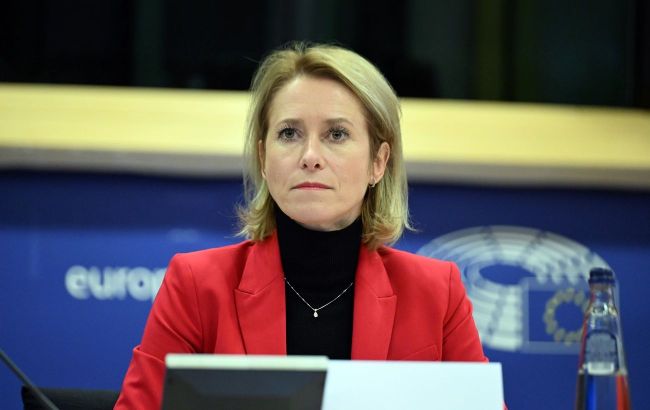Kallas tells EU's reaction to Vučić's visit to Putin's parade: 'Have a lot of questions'
 Kaja Kallas, High Representative of the EU for Foreign Affairs and Security Policy (Photo: Getty Images)
Kaja Kallas, High Representative of the EU for Foreign Affairs and Security Policy (Photo: Getty Images)
The visit of Serbian President Aleksandar Vučić to Moscow for the May 9 parade does not go unnoticed by the European Union member states, states head of EU diplomacy, Kaja Kallas.
The EU High Representative for Foreign Affairs and Security Policy criticized the visit of the Serbian president to the Russian capital for the military parade, despite previous recommendations from the bloc to refrain from such a trip.
In response to a question during a press conference with Poland's Foreign Minister, Radosław Sikorski, about whether Vučić's visit to the capital of Russia could affect Serbia's EU membership process, Kallas stated that EU member states would not take such actions lightly, and they would not go unnoticed by Brussels.
"The Serbian army is not participating in the parade and that is a positive side. That would have been really another level. But of course it remains on the conscience of these people who go hand in hand with Putin, who is waging a war now – the biggest war in Europe since World War II.," Kallas noted.
Speaking about the EU's reaction to Vučić's move, she said, "When we discuss the next steps, then the member states have a lot of questions."
"Who is your friend that you are really dealing with?" Kallas wondered.
Vučić's trip to Moscow for the May 9 parade
As previously reported, Serbian President Aleksandar Vučić accepted the invitation from Russian President Putin and decided to attend the Victory Day parade in Moscow.
EU’s High Representative for Foreign Affairs, Kaja Kallas, had previously pointed out that the European Union would not take lightly visits by European leaders to Russia.
Despite this, Vučić did not change his mind and decided to go to Moscow, as he had given his word to Putin.The trip to the capital of the aggressor state for the Victory Parade was not easy for Vučić - it came with some complications. The Serbian president’s plane was temporarily stuck in Baku.
Serbia officially gained the status of an EU membership candidate in March 2012.

